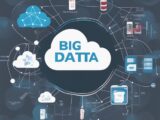
Exploring the Future Landscape of Bioinformatics in the Era of AI
September 4, 2023Table of Contents
Unlocking Bioinformatics: AI Revolution and Future Opportunities in the Age of Precision Medicine
Introduction
The realm of bioinformatics, a dynamic intersection of biology and information technology, is experiencing a remarkable surge in growth, primarily propelled by technological advancements and the increasing availability of biological data. The integration of artificial intelligence (AI) into this field holds transformative potential, bringing forth a multitude of prospects, challenges, and novel pathways for research and career opportunities.
Unveiling Opportunities in Bioinformatics by 2030
Personalized Healthcare
Bioinformatics takes center stage in the realm of personalized medicine, delving into patients’ genetic data to pinpoint potential disease risks. This personalized approach to medical treatments not only promises better patient outcomes but also promises to alleviate the financial burden on healthcare systems.
Revolutionizing Drug Discovery
The fusion of AI and bioinformatics is revolutionizing drug discovery. By delving deep into the genomes of disease-causing organisms, AI uncovers potential targets for drug development. This fusion expedites the identification of prospective therapeutic candidates.
Precision Agriculture Unleashed
The potential of bioinformatics is also realized in precision agriculture, where genetic markers are harnessed to optimize crop traits, including yield and resistance to diseases. This precision-driven approach ensures sustainable agricultural practices.
Monitoring Our Environment
AI-driven bioinformatics takes environmental monitoring to new heights by dissecting the genomes of organisms sensitive to environmental stressors. This approach provides valuable insights into environmental pollution and ecosystem health.
Fortifying Biosecurity
AI-powered bioinformatics contributes to enhancing biosecurity efforts by analyzing genomes of biothreat agents. This deep dive into the genetic makeup helps to decipher their pathogenicity, laying the groundwork for effective countermeasures and preventive strategies.
AI’s Current Impact and Glimpses into the Future
Current Applications of AI in Bioinformatics
The current landscape showcases AI’s prowess in bioinformatics. Machine learning algorithms sift through biological data to discern patterns, while deep learning proves invaluable in predicting protein structures. Natural language processing aids in extracting relevant information from extensive text datasets, and robotics streamlines data analysis and sample preparation tasks.
Picturing Future Opportunities with AI in Bioinformatics
The integration of AI foretells an era where personalized medicine becomes further refined, unraveling genetic risk factors and engineering treatments tailored to individual patients. The domain of drug discovery is poised for a revolutionary makeover, extending its reach into agriculture, environmental studies, and beyond.
AI’s Role in the Bioinformatics Job Market
Navigating Uncertainties and Anticipating Growth
The ongoing debate centers on whether AI will entirely supplant bioinformatics-based jobs. While this remains uncertain, market reports indicate substantial growth in the AI in Bioinformatics sector, potentially creating novel job avenues for AI experts.
Sought-After Skills in the AI-driven Bioinformatics Realm
The impending AI revolution in bioinformatics demands a unique skill set. Proficiency in programming languages, coupled with a firm grasp of machine learning algorithms, data analysis, and cloud computing, will be pivotal. Collaboration skills and domain expertise in areas like genomics will remain highly coveted.
Envisioning Future Bioinformatics Roles with AI Skills
New bioinformatics roles beckon, seeking professionals skilled in both AI and traditional bioinformatics. These roles, such as AI Bioinformatics Scientists, Machine Learning Bioinformatics Analysts, and Bioinformatics Data Scientists, amalgamate the power of AI with the insights from bioinformatics.
Qualifications for AI Bioinformatics Roles
Credentials that Count
Qualifications for AI bioinformatics positions often encompass degrees in fields like bioinformatics, computer science, or related disciplines. Mastery of programming languages, familiarity with machine learning algorithms, and domain-specific knowledge are critical. In some instances, a PhD might be required.
Confronting Challenges in AI/Software Engineering for Bioinformatics
Navigating Data Complexities
The realm of AI and software engineering in bioinformatics grapples with the intricacies of noisy, heterogeneous biological data. This challenge necessitates strategies to enhance data quality and seamless integration.
Untangling the Interpretability Conundrum
The interpretability of AI models poses another challenge, making it imperative to unravel how these models arrive at their predictions. Ensuring their accuracy through robust validation processes becomes paramount.
Minding Ethical Frontiers
The amalgamation of AI and bioinformatics introduces ethical considerations, including data privacy, security, and bias. Responsible integration of AI demands a comprehensive approach to address these concerns.
In Conclusion
The harmonious convergence of AI and bioinformatics paints a promising future, where innovation and advancement are key protagonists. While AI’s role in reshaping biological research is undeniable, it will not eclipse the significance of bioinformatics professionals. Instead, it ushers in novel horizons and redefines the landscape, offering solutions to intricate challenges and fostering a vibrant job market. As AI continues to evolve, those proficient in harnessing its potential within the realm of bioinformatics stand poised to lead breakthroughs that will shape healthcare, agriculture, and environmental conservation for years to come.


